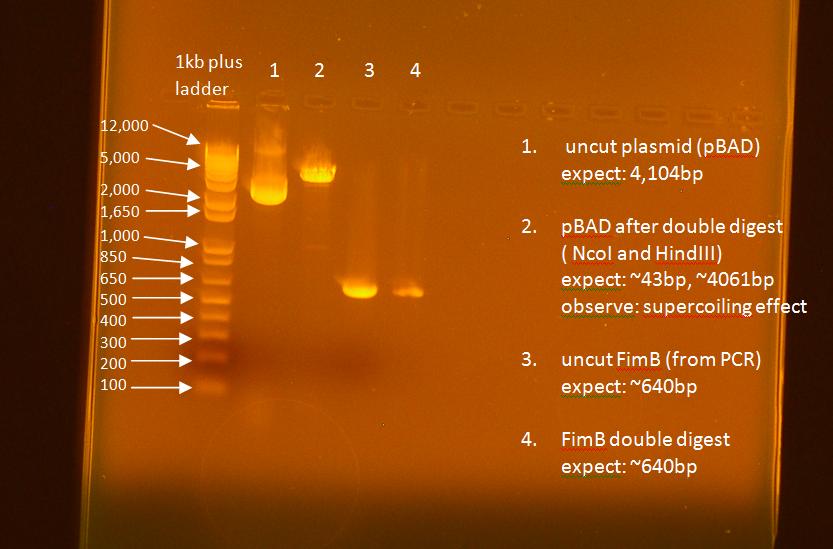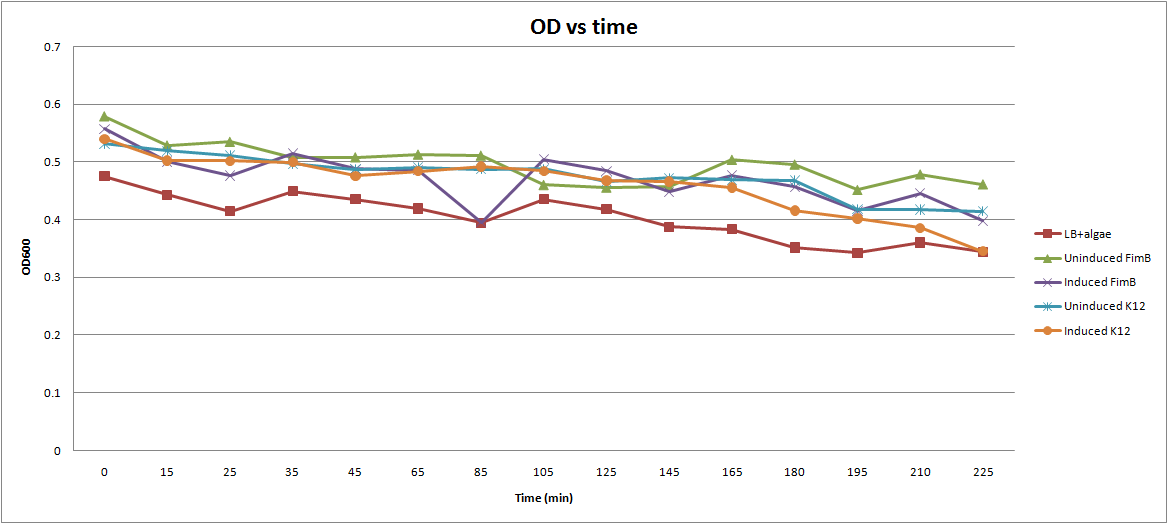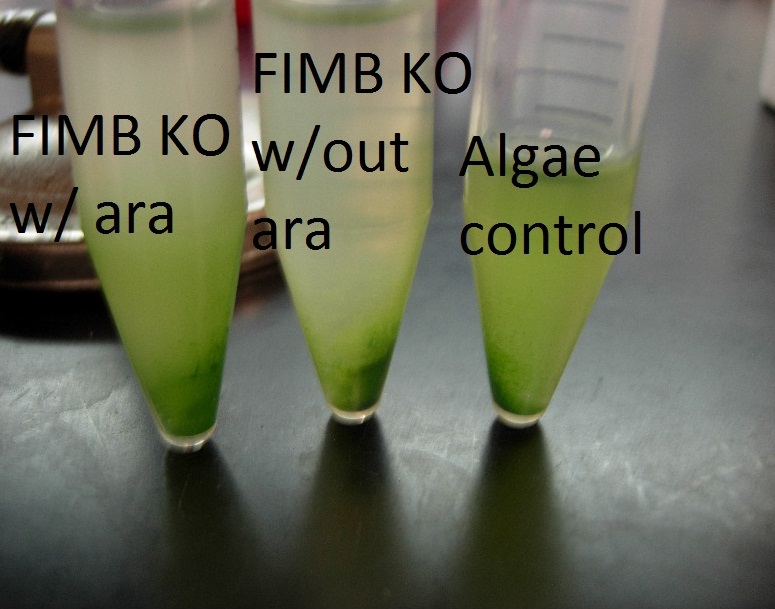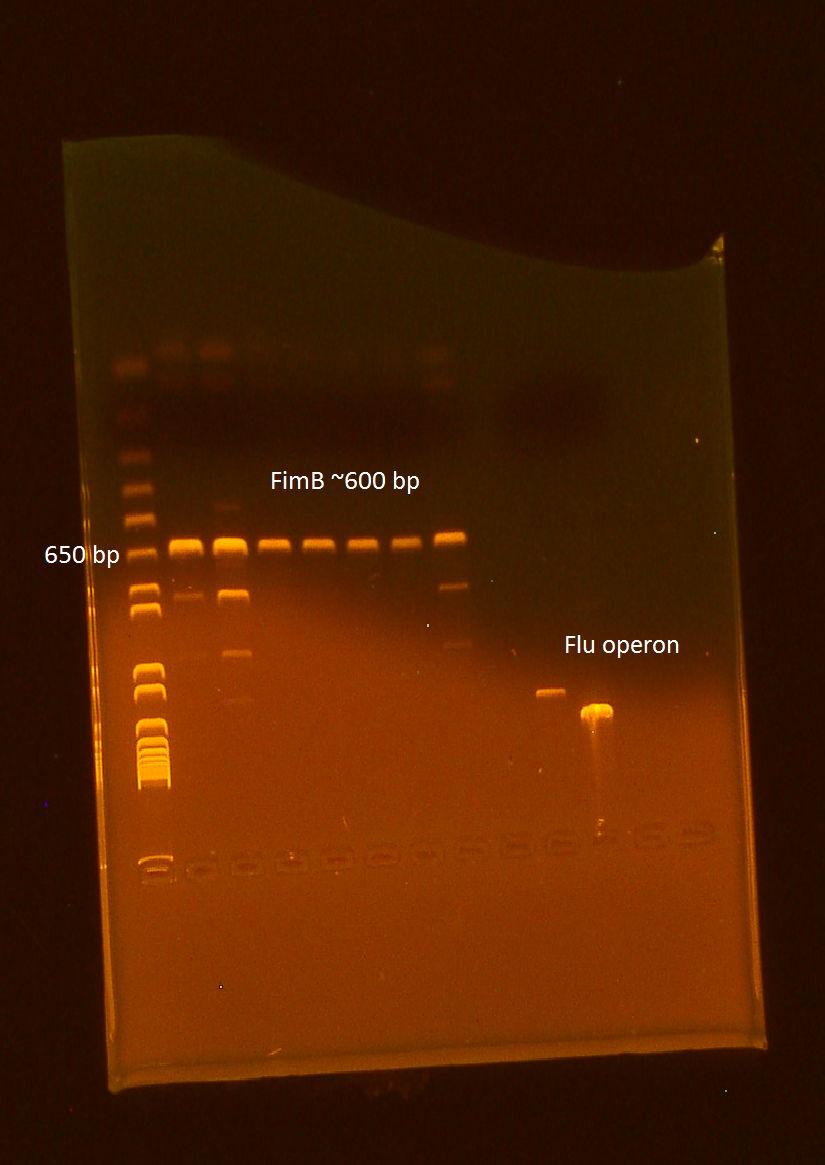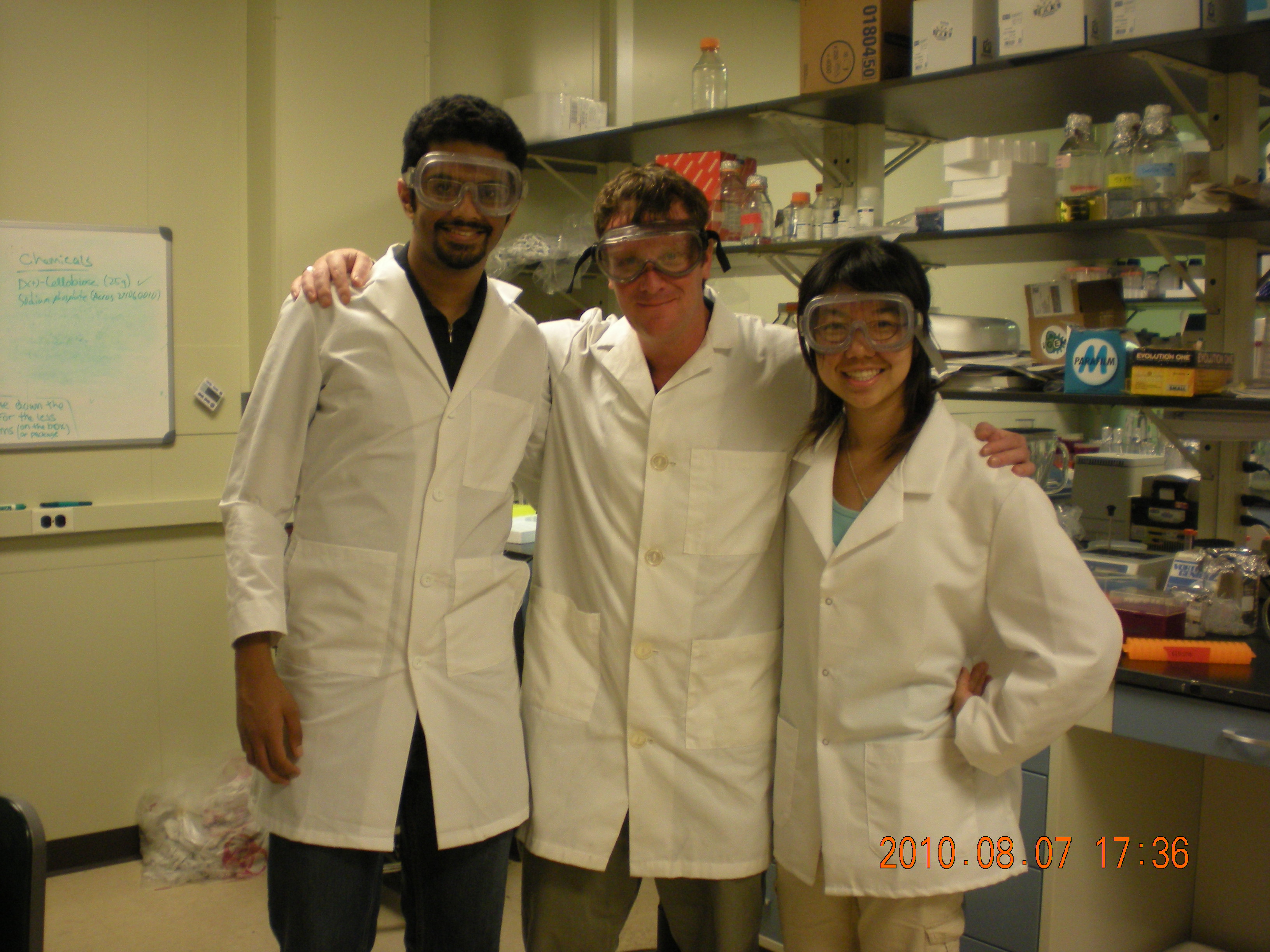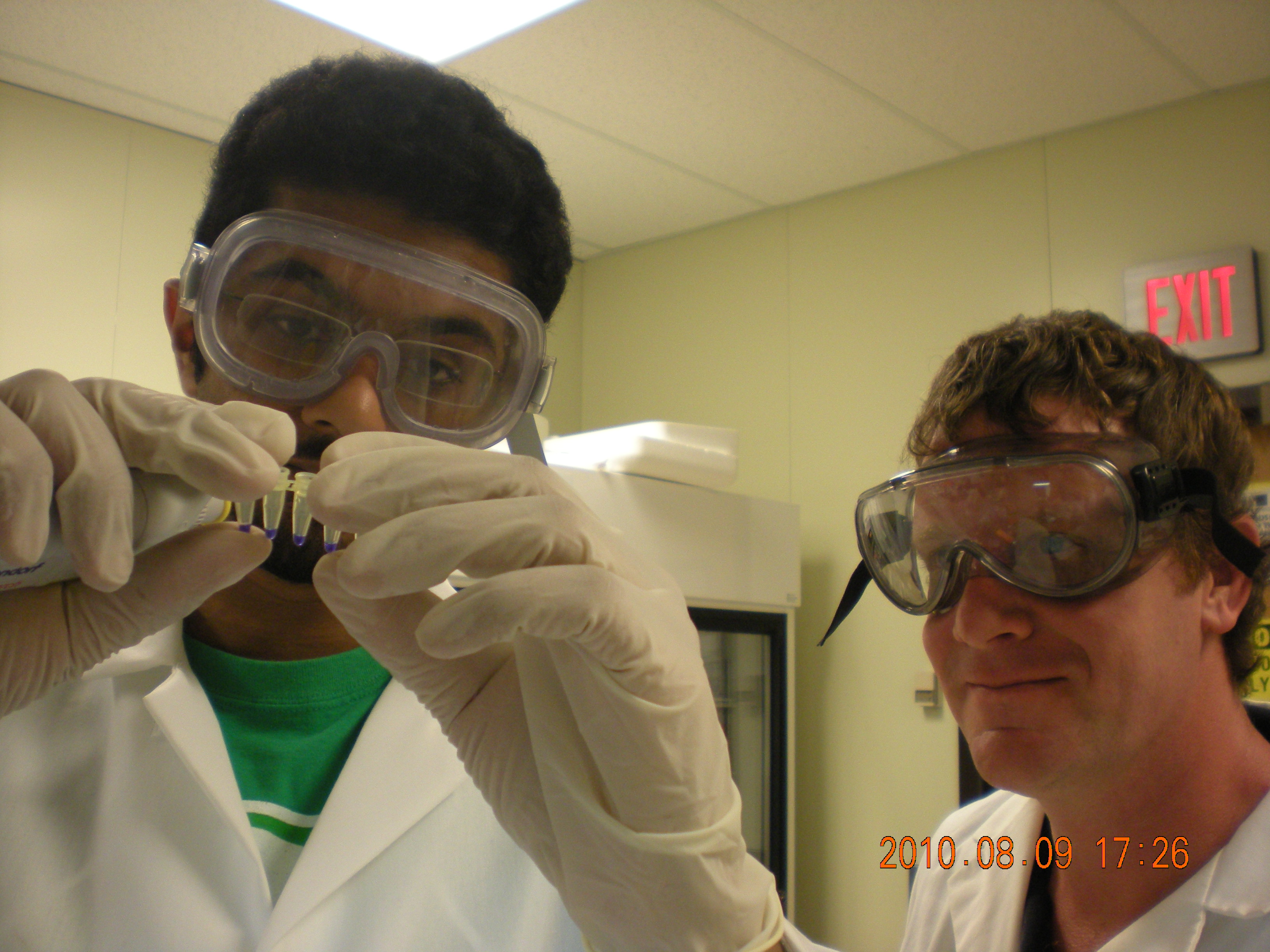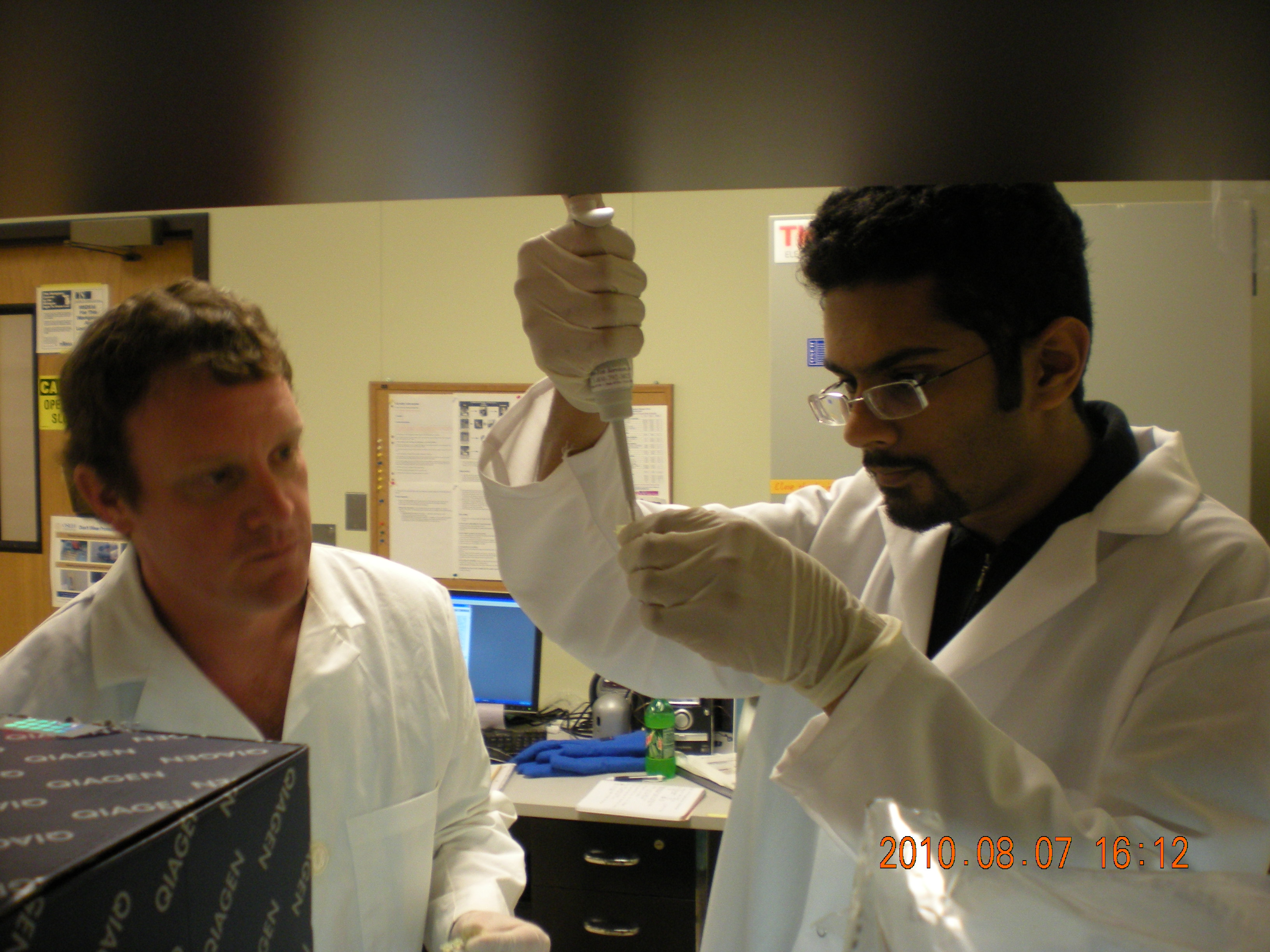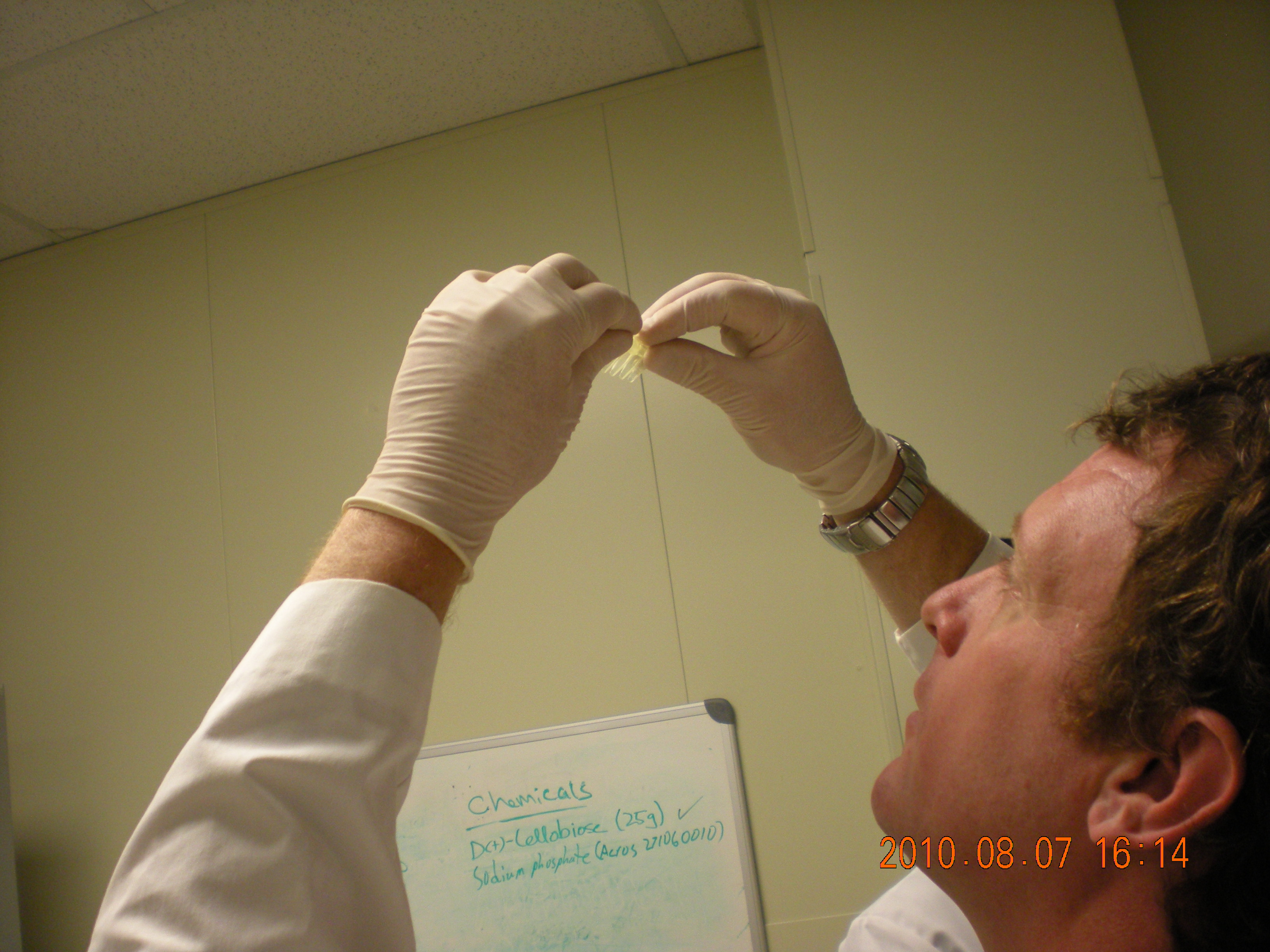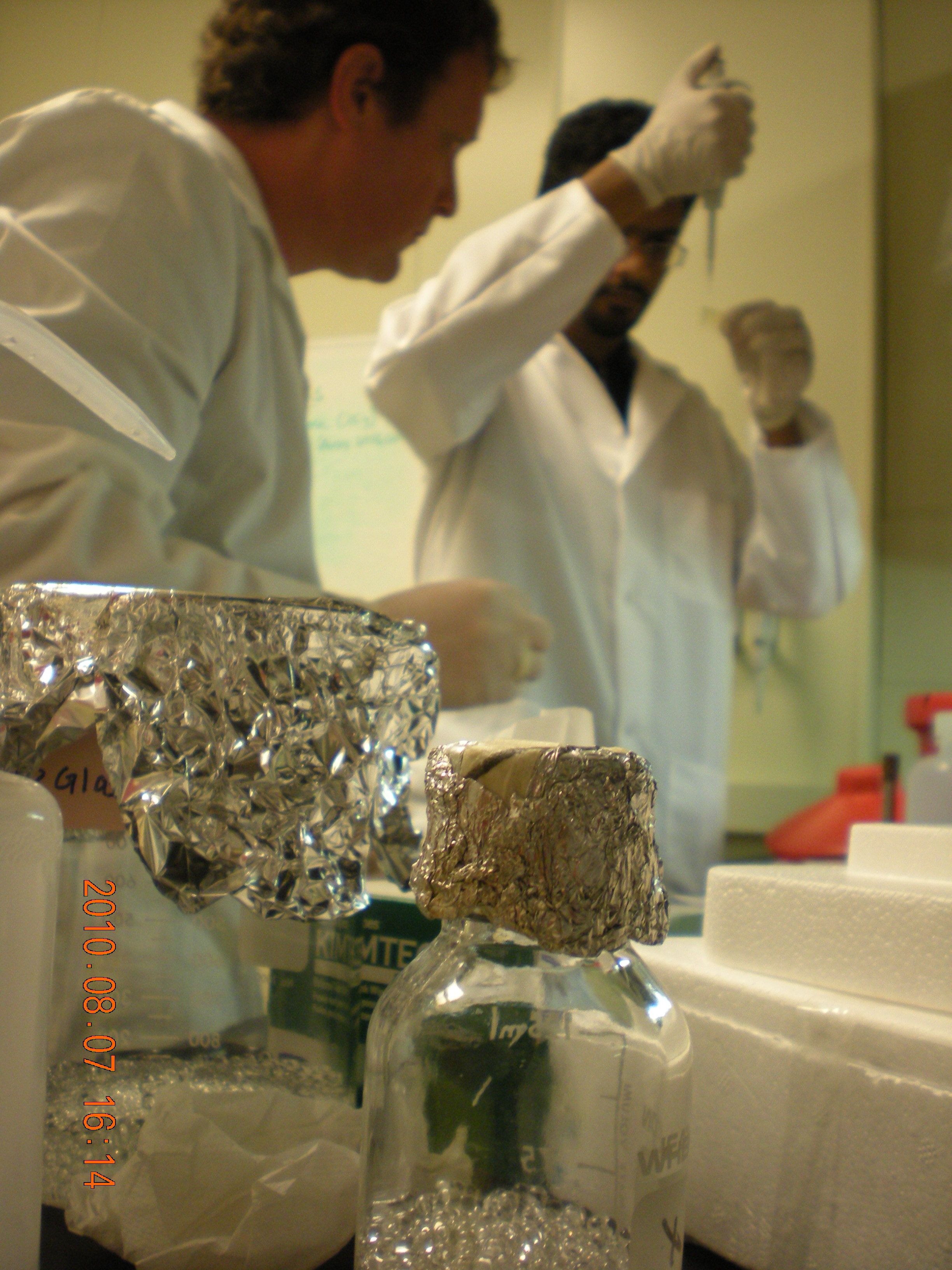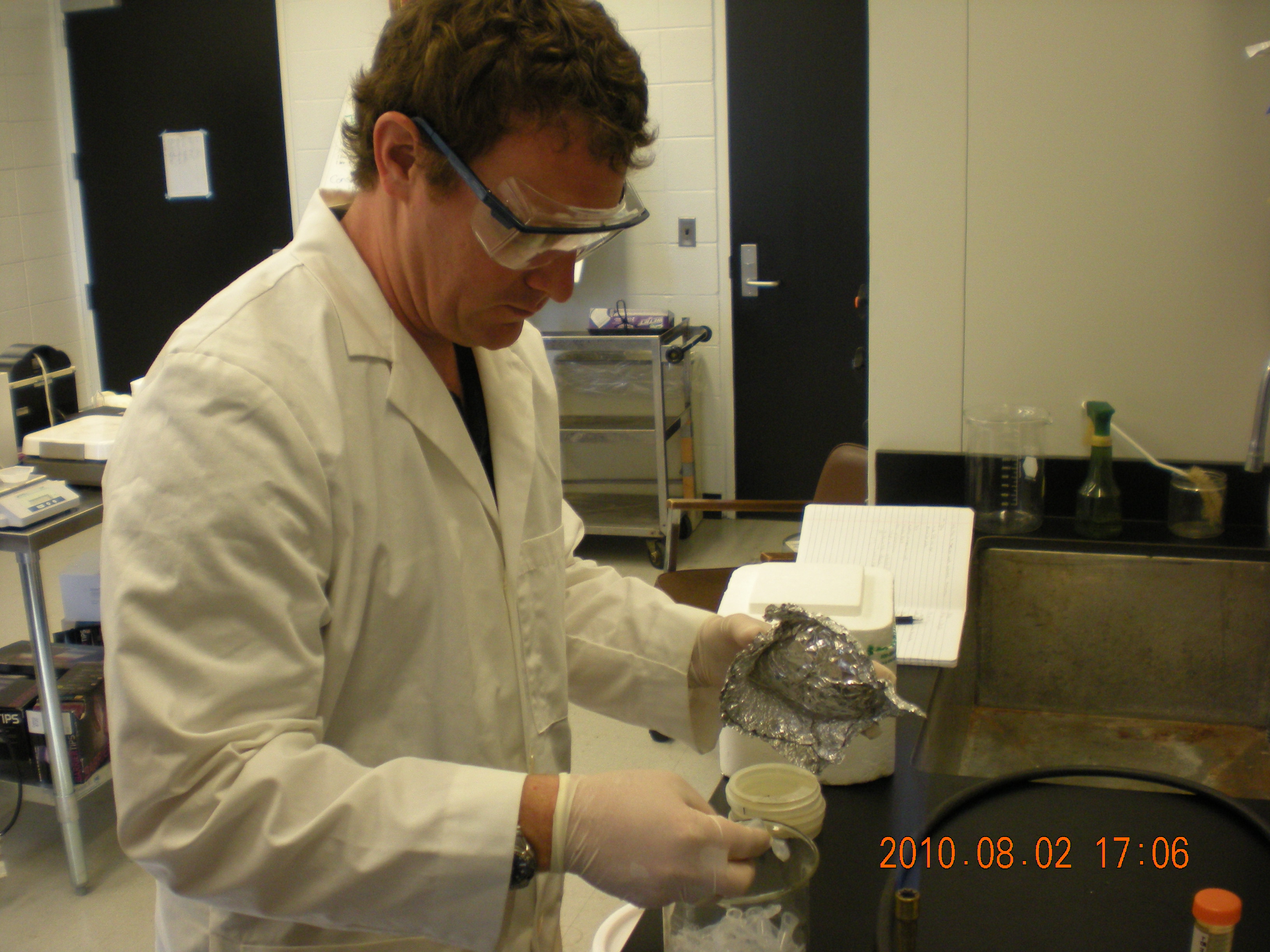Team:Michigan/Pili Expression
From 2010.igem.org
| Sunday | Monday | Tuesday | Wednesday | Thursday | Friday | Saturday | |
| Week 1 | - | 6/28/2010 | 6/29/2010 | 6/30/2010 | 7/1/2010 | - | - |
| Week 2 | - | - | - | 7/7/2010 | - | - | - |
| Week 3 | - | - | - | - | - | - | - |
| Week 4 | - | - | - | 7/21/2010 | - | - | - |
| Week 5 | - | - | 7/27/2010 | - | - | - | - |
| Week 6 | - | - | - | - | - | - | 8/7/2010 |
| Week 7 | - | 8/9/2010 | - | 8/11/2010 | 8/12/2010 | - | 8/14/2010 |
| Week 8 | - | 8/16/2010 | 8/17/2010 | 8/18/2010 | - | - | - |
| Week 9 | 8/22/2010 | 8/23/2010 | - | - | - | - | - |
| Week 10 | - | - | - | - | 9/2/2010 | - | - |
| Week 11 | - | - | 9/7/2010 | 9/8/2010 | 9/9/2010 | 9/10/2010 | - |
| Week 12 | - | - | - | - | - | - | - |
| Week 13 | - | - | - | - | - | - | - |
| Week 14 | - | - | - | - | - | - | 10/2/2010 |
| Week 15 | 10/3/2010 | - | - | - | 10/7/2010 | - | - |
| Week 16 | - | - | - | 10/13/2010 | - | 10/15/2010 | - |
| Week 17 | - | 10/18/2010 | - | - | - | - | - |
Pili Expression TeamThis team includes Marc Singer, Kevin Joseph, and Alena Wu. 6/28/2010Made a 500 mL batch of LB broth
Sterilized broth using the autoclave
6/29/2010Started growing E. coli K12 cultures
Added and inventoried supplies from Dr. Pinto's lab.
6/30/2010Cryopreserved stock of K12
7/1/2010Cryopreserved DH5α according to protocol procedure on 6/30/2010
7/7/2010Obtain genomic DNA of CFT073 E. coli strain from Dr. Mobley's Lab
7/21/2010Kevin, Marc, Alena Met in Dude to determine sequence of fim operon. Arranged meeting with Dr. Mobley's group next Tuesday to learn more about hyperpiliation and the cloning process. 7/27/2010Kevin, Marc, Alena Met with Chris Alteri from Dr. Harry Mobley's research group to discuss the best route to hyperproduce the pili. Chris recommended that we create a plasmid by cloning FimB into pBAD, and then inserting that plasmid in MG1655. In theory, that should activate flocculation in the E. coli, inducible by arabinose. Chris was able to give us the procedures for creating a plasmid with FimB, as well as the procedures for knocking out a gene. In order to test how effectively the pili flocculate, we are planning to create an E. coli strain with fimE knocked out. 8/7/2010Kevin, Marc, Alena PCR #1 Used a gradient from 40C to 60C for the first 3 cycles to find the optimum anneling temperature. All of the annealing temperatures gave a good result according to the gel. 8/9/2010Kevin, Marc, Alena Used a 57C degree annealing temperature to get enough DNA for the digest and ligation. 4 out of the 5 PCR reactions worked well according to the gel. The 5th well could have been a loading problem or there wasn't enough DNA. 8/11/2010Kevin, Marc Met with Chris, received advice for updating digest and ligation protocols. 8/12/2010Kevin, Marc, Alena Met and discussed protocols for digestion and ligation of FIMB into pBAD. 1. Added 5 mL of LB broth each to 2 50 mL falcon tubes in the ERB lab using sterile technique. 2. Added 5 microliters of Kanamycin to each of the 50 mL tubes in step 1. Went to the budget committee meeting for 1 hour with the tubes. 3. Obtained the cryostock of pBAD from the Lin -80C freezer (iGEM box cell #73) 4. Stabbed cryostock using a sterile 200 microliter pipette tip and pipetted into media from step 2. 5. At 8:05PM placed the two falcon tubes from step 4 into the incubator/shaker at 30C. 8/14/2010Kevin, Marc, Alena Miniprep pBAD plasmid
fimB PCR product Purification
repeat step 4 again
fimB Digest
8/16/2010Kevin, Marc, Alena Alena order/picks up NEB Ligase (T4 DNA Ligase, 20,000U/mL) from MSRB II enzyme store Attempted experiment:
We made a huge human error when setting up our thermal cycle program on the PCR machine. We did not realize we only set the thermal cycle for our digest on 8/14/2010>> [1] for 12 minutes (12:00) rather than the intended time period of 12 hours (12:00:00). This explains the condensation present in the PCR machine (it stayed at 4C for too long). We discovered our mistake after running the incubation of CIP+pBAD for 37C for (1:00) 1 minute then heat-shock at 65C for 15 minute. It is VERY IMPORTANT to triple check one another when entering in any program. Rest of the day:
8/17/2010Kevin, Marc, Alena Marc inoculated the two cultures made last night (8/16/2010) with pBAD and grew in 37C shaker (~9am to ~6p, 9hrs) NOTE REGARDING LB CULTURE MADE ON 8/16/2010
fimE and fimB knock out (K.O.) strains came in
Followed 8/14/2010 protocol (above) for:
8/18/2010Kevin, Marc, Alena Met with Chris to discuss about yeast agglutination
NOTE ABOUT K.O. STRAINS
Lab work:
8/22/2010Kevin, Marc Ran Ligation of FimB and pBAD for 16 hrs O/N Prepared culture of DH5a for electroporation tomorrow. 8/23/2010Kevin, Marc Growing competent cells for electroporation. Colony started growing at 2:00. Measured ODs
Precipitate Ligation product w/butanol Add to eppendorf tube:
Spin at 4C, 13000 rpm for 20 min Made ampicillin plates
6 plates:
9/2/2010Kevin Electroporation of pBAD+FimB into K12 and ΔFimB::kan cells. 15 plates
9/7/2010Kevin Started overnight cultures of 1:1000 dilutions of K12 and ΔFim::kan, both with the pBAD+FimB plasmid. 9/8/2010Kevin Created frozen stocks of K12 and ΔFim::kan w/the plasmid from overnight cultures. Stored them in box 1 in the ERB -20C freezer. Ran miniprep of K12 and ΔFim::kan, using 5 ml of each culture. Note: Centrifuge in ERB will only go up to 5000 rpm w/50 ml tubes, therefore we transferred the culture to several eppendorf tubes. This was probably not a good idea, because we were left with a lot of leftover supernatant and that could have diluted the buffers. In the future, we should centrifuge the culture 1 ml at a time, and add 1 ml after each cycle. Stored the product from miniprep in box 2 in the ERB -20C freezer. 9/9/2010Kevin Cryopreserved frozen stocks of K12 and ΔFimB::kan w/the plasmid. Ran digest to determine whether the plasmid and FimB were actually in the cell. Used protocol from previous digest on 8/14. 9/10/2010Kevin Ran gel of previous day's digest, unfortunately the gel was inconclusive. There is an undetermined error with the gel electrophoresis machine. 10/2/2010Kevin Prepared tubes with K12 and ΔFim (Both w/insert) for an agglutination assay. We added algae and arabinose at an OD600 of 0.8 and then let the tubes grow 10/3/2010Kevin We were able to observe pellets in the tubes containing ΔFimB w/insert. This is exciting, but there are several things to note:
We are planning to run a more quantitative assay later this week. 10/7/2010Kevin Ran flocculation assay.
This graph illustrates the results. We can see a decline in the OD600 for all species, but there is no clear distinction between our control tube (LB+Algae) and the other tubes containing E. coli. Suggested Modifications:
Marc ran another qualitative assay, with positive results. 10/13/2010Kevin Ran PCR of FimB in preparation of making our final iGEM BioBrick standard part. 10/15/2010Kevin Ran gel of PCR products from 10/13. It appears that all of our wells contain our intended product, however 3 wells appear to contain unexpected products as well. 10/15/2010Kevin PCR purified the FimB PCR product, using the PCR purification kit in 1230 ERB. Started o/n cultures of ΔFimB and K12 in preparation of another OD assay. |
In the Lab |
 "
"

